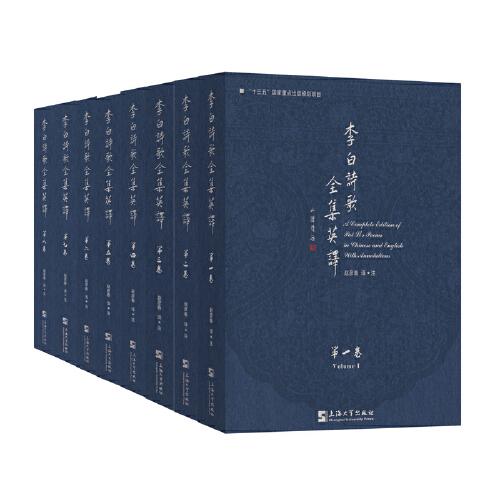

Pursuit of excellence
Translating poetry is unlike regular translation work as Zhao says it requires one to be proficient in the ancient Chinese language and English, skilled in translation theories, and have well-versed knowledge of literature styles.
"Translation in other fields usually deals with content that only deliver information, but literary translation-especially poetry translation-must show readers the beauty and artistic values of words. This is the trickiest part," he says.
Zhao adds that a good translation of a poem should have rhythm and words that compel readers to form images in their minds.
"Many people regard poetry translation as something that is impossible to accomplish. But it is possible, you just need to put in a lot of effort," he says, referring to how he spent at least 14 hours a day translating Li's poems.
His quest to producing high-quality translations also involves not referring to other translations of the same work. Zhao explains that this self-imposed rule prevents him from subconsciously following the ideas and styles of others.
"What I do is read an analysis-not the translation-of the original work to gain a better understanding," he says.
Annotation is another key step in the translation process. Zhao took three months just to do annotations for Li's poems.
"There are only two words in English that refer to the moon, but there are about 200 phrases that can mean the same thing in Chinese. Each phrase has a story behind it which demands an annotation to explain ancient culture," he explains.
Besides words, the form and rhyme must also be translated appropriately.
"A translator is like god looking down at the original text and translated language, and finding a bridge between them. This process must be backed up by solid knowledge in interdisciplinary fields such as linguistics," he says. "Otherwise, the translated text will lose the charm that was present in the original."
Zhao wrote about this process in detail in his 2005 book A Reductionist Approach to Translatology. Throughout his career, he has translated and published over 20 traditional Chinese literature works, including The Book of Songs, comprising some 300 poems dating back to 7 BC; Tao Te Ching, a Chinese Taoist philosophical classic; and The Analects, a collection of sayings attributed to Confucius and his disciples.
Despite having translated thousands of works, Zhao still sees every poem as a new challenge.
"Every poem is like a code that cannot be copied. My experience has armed me with aesthetic knowledge and language abilities that allow me to do translation more efficiently," says Zhao, who took just three months to complete the translations of Li's poems.
Most translators would require years to accomplish this same feat.
"That being said, choosing the right words is always a challenge and requires a lot of research. But once I crack the code, the gratification I get is uplifting," he says.